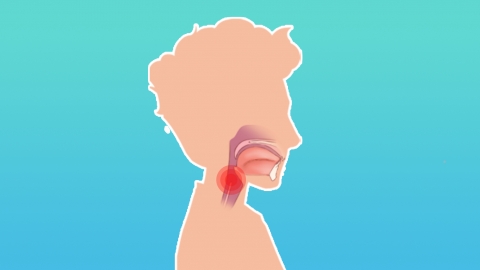What are the symptoms of pharyngitis?
Generally, the main symptoms of pharyngitis include sore throat, dry throat, hoarseness, cough, and a sensation of a foreign body in the throat. If discomfort symptoms appear, it is recommended to seek timely treatment at a regular hospital. Detailed analysis is as follows:
1. Sore Throat
Inflammation irritates the mucous membrane of the throat, causing congestion and swelling, which stimulates nerve endings and causes pain. Muscle movement in the throat during swallowing intensifies this irritation, making the pain more noticeable. In some cases, the pain may radiate to the ear.

2. Dry Throat
Inflammation can impair the normal secretory function of the throat's mucous membrane, reducing mucus secretion and preventing the throat from staying moist. Patients often feel dryness and may need to drink water frequently for relief.
3. Hoarseness
When the throat inflammation affects the vocal cords, it causes congestion and edema, affecting the vibration frequency and amplitude of the vocal cords. This results in a deeper, hoarse voice, and in severe cases, temporary loss of voice. Excessive talking can worsen these symptoms.
4. Cough
Secretions or irritation caused by throat inflammation can trigger reflexive coughing from the respiratory mucosa. Initially, the cough is often dry, but later may involve phlegm due to increased secretions. Frequent coughing can further aggravate throat damage.
5. Foreign Body Sensation in the Throat
Swelling of the throat mucous membrane, adhered secretions, or nerve hypersensitivity caused by inflammation can make patients feel as if there is a foreign object blocking the throat—such as phlegm sticking, or small particles lodged there. The sensation is noticeable during swallowing but the object cannot be coughed up or swallowed.
In addition, some patients may also experience systemic symptoms such as fever and headache. If you notice any of the above symptoms, you should avoid eating spicy or excessively hot food in daily life, and reduce irritation from smoking and alcohol. Drink plenty of warm water to keep the throat moist, avoid overusing your voice to allow the throat adequate rest, and seek medical treatment promptly if symptoms persist without improvement.








